TRANSCRIPTION
What was your fondest memory as a child?
Sitting in my dad's truck, teaching myself how to drive, I pretended to shift gears and I made the noises.
What did your family do for fun when you were still living at home?
I don't remember doing anything for fun with my family. El nino perdido. (the lost child)
Did your parents go to school?
No
Did your grandparents go to school?
No
What was your neighborhood like? How has it changed?
It was a friendly neighborhood, we lived between to neighborhood gangs, the Ghost town gang and the Alto Gang. We would all hang out at the the only house on the street that had a tv.
Were you in a gang?
Not at first. The alto gang thought I was a Ghosttowner and the Ghosttown gang thought I was an Alto. But when they found out I was neither, I got beat up everyday. I finally gave in and joined the Ghosttown gang, and I was never beat up again.
Where did you hang out and what did you do for fun?
Paul Maries, Ray's Drive inn, and Drive in Movies, we just hung out there, they sold beer to minors, we were only 15 years old.
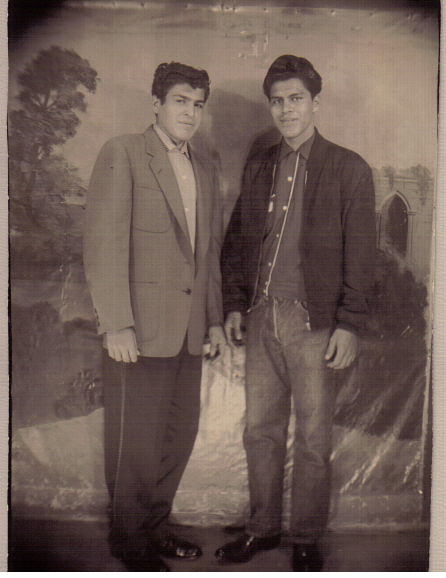
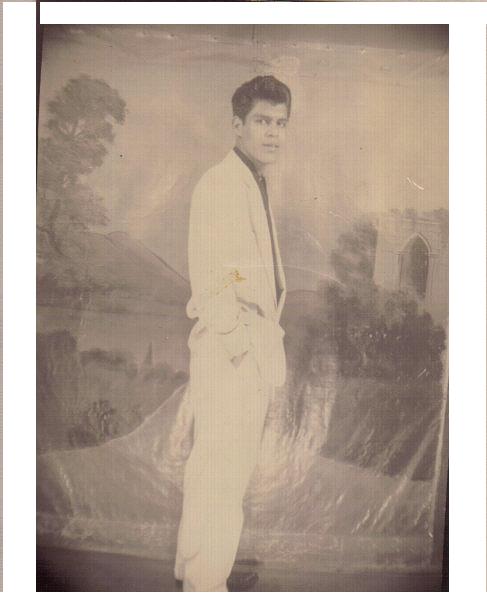
How old were you when you got your driver license?
17 years old
When you drove around in your truck, did you remember what went through your mind?
I thought I was a hot rodder.
Did you hang out at school?
No, we weren't allowed to hang out at school. Although I had to stay after school for a while, cause the principle didn't want me getting a girl in trouble, so he kept me at school until she got home.
How do you see that the school systems have changed?
The schools are more technical, they make you learn, back in our day , they socially promoted you. There were hardly any hispanic teachers.
How has downtown changed?
The urban renewel, chicano removal. They got rid of a lot of mexican sellers and restaurants.
Were you able to get any money when your worked as a teenage?
I gave all my money to my mother voluntarily and she would give us a dollar. We could go to the movies, get drinks and food with a dollar.
How were your trained in your jobs?
It was on the job training. Nothing about safety.
Were you discriminated against at any of your jobs?
At the gunter hotel, only the white boys could work in the restaurant area because it was a fancy one. Later on, they let me in to work, because I was a good worker.
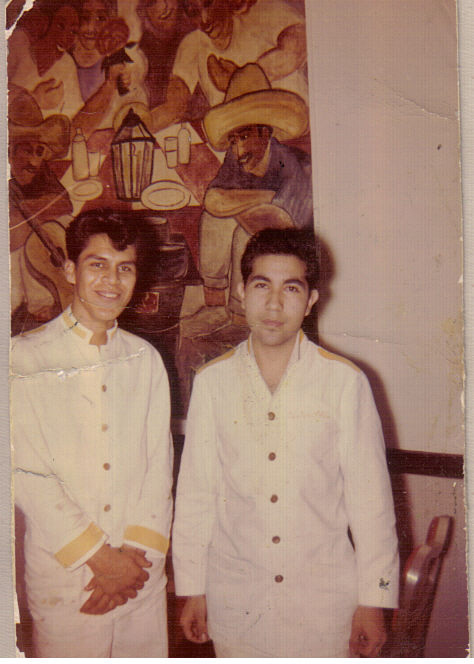
Did you join any unions while you were employed?
When I worked at the Coca Cola Company, I tried to join a union, there wasn't enough interest. At Schnieders print shop, I crossed a picket line to work because I needed to feed my family.
What did you believe in, when you worked at the Mexican American Councils, What were your views?
I was in the good government league . We got programs for the west and south sides of town. The Raza Unida was used for political purposes. We made street signs and tshirts for elections for any politician that was willing to aid our purposes. The restaurants were for hard core addicts, we petitioned the Methodist and Presbytarian churchs for funding for the Restaurants chain, they gave us $75,000. We had a grand opening for the new restaurant "El Chaleco", councilmen Pete Torres and Joe Bernal worked as waiters for the day.
When did you change your political views?
I was a Member of the Raza Unida, Our group put people in places where they could help our cause. Rosie Castro was also in the Barios Unidos, we hung out with Col Cisneros, Quiqe Cisneros and Joe Bernal also. I found out not all politicians are good.
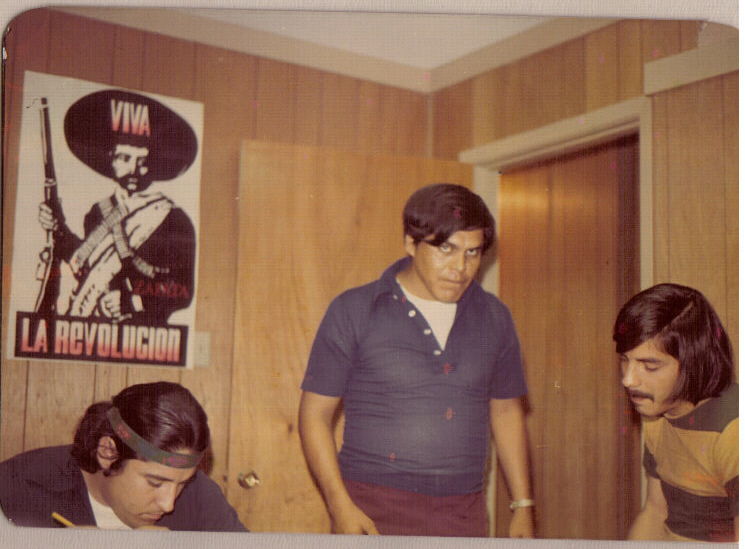
Do you think you could have gone into politics?
Yes, I would have. When I worked at the Police Department community relations, I wasn't making enough money so I left to find other work.


What was it like to own a restaurant in San Antonio?
It was a thriller. It was nice experience. It felt good to drive a new car, have furniture. But because of politics, I was offered a job to open up other restaurants with a program for ex cons, I sold the restaurant. Didn't work out, the program got cancelled because they used the money for reelections of politicians.
When you became a father, what did you see yourself doing for your children?
Growing up with them, I had to care for my little sisters, my responsibilities changed.
Do you recall what it was like to live next door to your parents?
Warm meals everyday. Knowing we could leave the kids anytime was pretty cool, knowing they would be taken care of.

Did you plan on living next door to them always?
Yes, I wanted to live there always.
What did you do at the Y?
I started a program, NYPUM, sent a letter to honda, and they gave us minibikes, and funding for mechanic training. We used to take the youth on field trips to keep them from gang fights. We were youth out reach workers, with ten housing projects, we spoke to kids about gangs, drugs.

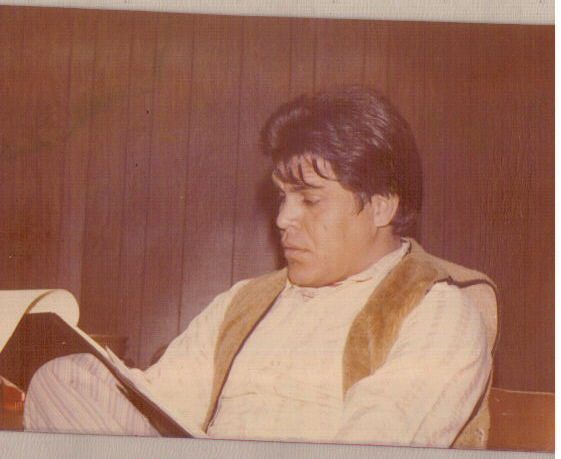
Is there anything else you would like to add to this interview?
I went to work for HB Zachry in Saudi Arabia for the money and the opportunities to travel. It was a good learning experience. They though I was a saudi, because of my skin color. I had to explain to them of my mexican heritiage. They never heard of mexico.
I love living in San Antonio and wouldn't never live anywhere else. Floods, hurricanes, tornadoes, mudslides, they don't happen like everywhere else. It's a great place to live. I know people who have never been to the Alamo and have lived in San Antonio all their lives. I have been to the tower for times and six times to the Alamo.

